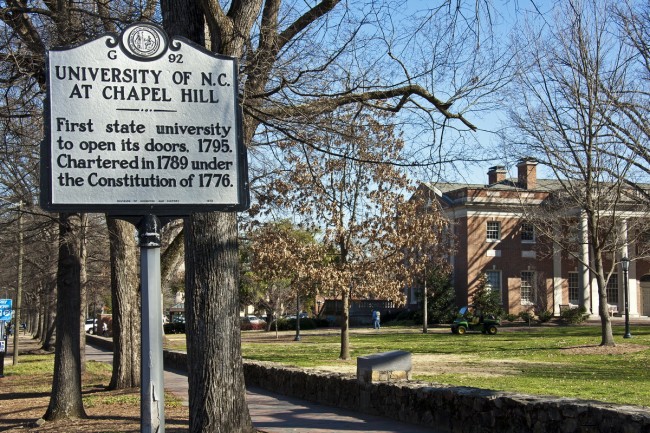UNC Chancellor Carol Folt has denied a request to speak on the Chapel Hill campus from leader of the so-called alt-right Richard Spencer.
Folt made her decision public in a letter to the campus community on Wednesday afternoon.
Folt wrote that she was denying the request from Spencer’s National Policy Institute because of “serious concerns about campus safety.” Speeches from Spencer and others sharing a similar message have led to protests, which has sometimes resulted in violence, in recent months. The focus on Spencer and similar individuals and organizations has intensified after the white supremacist rally in Charlottesville, Virginia, earlier this month where a counter protester was killed.
Folt’s decision came after the chancellor consulted with UNC Police and other law enforcement agencies “who have thoroughly assessed the risks such an event could bring to Carolina,” according to Wednesday’s letter. “Our basis for this decision is the safety and security of the campus community – we are not willing to risk anyone’s safety in light of these known risks.”
Protesters have continued calling for the removal of Confederate monument Silent Sam since the Charlottesville rally. Students have maintained a presence at the statue since a rally on the first day of classes last week. Folt has said she would remove the statue if it was determined to be a public safety risk, but has maintained she does not feel the university has unilateral legal authority to make that decision at this time.
“I am deeply saddened and disturbed that the violent and virulent rhetoric being espoused by extremist groups has jeopardized the ability of campuses to promote robust dialogue and debate about important issues while ensuring public safety,” Folt writes in Wednesday’s letter.
The chancellor said in the correspondence that engaging in constructive conversation was one way to move forward, adding that the first of this year’s “Carolina Conversations” will be held on September 6 and focus on a program called “The First Amendment and Free Speech at UNC.”
Related Stories
‹
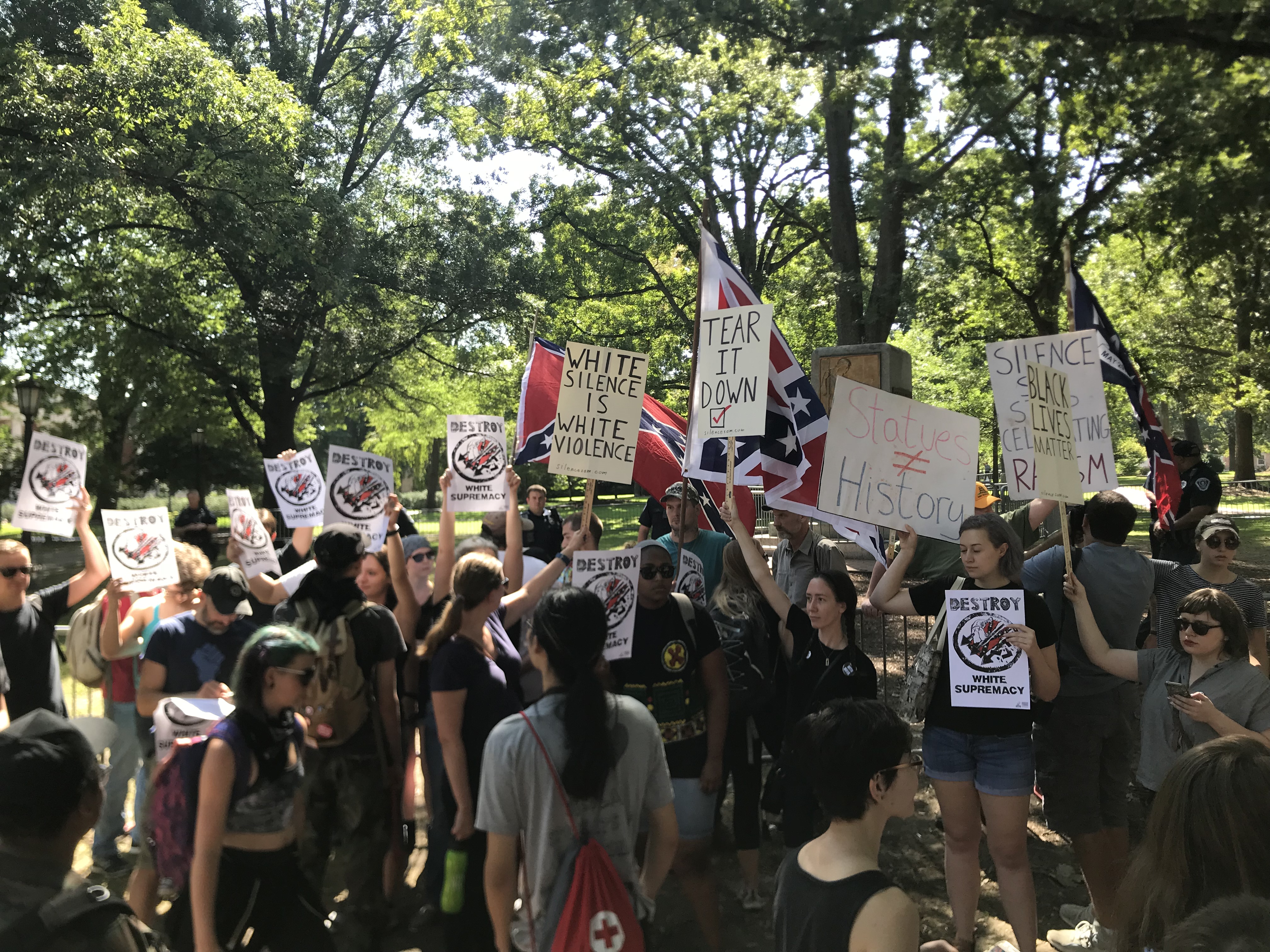
Chapel Hill to UNC: Relocate Silent Sam Away from the TownChapel Hill Mayor Pam Hemminger and members of the Town Council sent a letter to UNC following the voided lawsuit between the university and a pro-Confederate group. Last week, Judge Allen Baddour ruled that the Sons of Confederate Veterans lacked evidence to prove the group had legal standing to bring action against the UNC System and dismissed […]
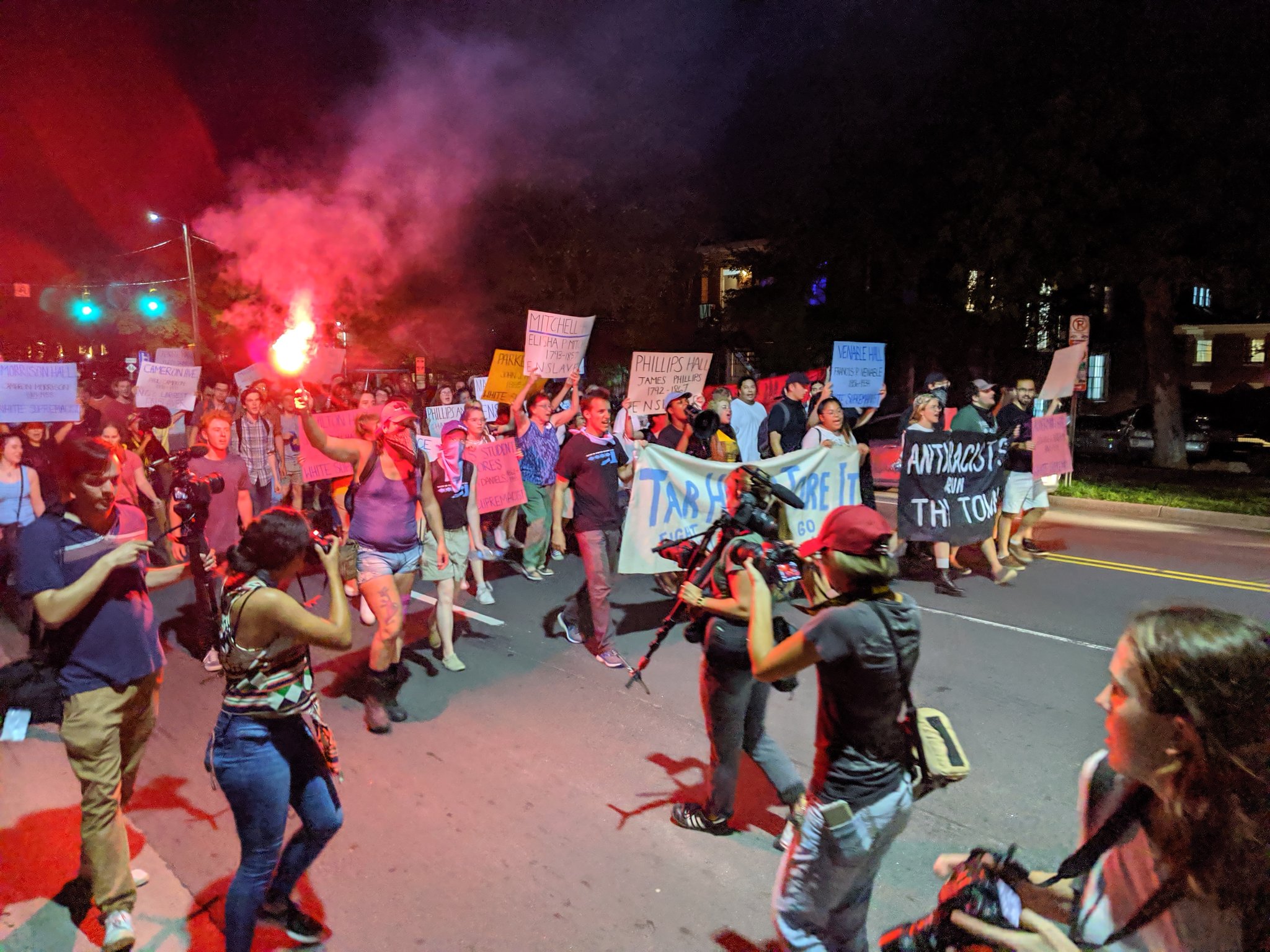
Anti-Racist Activists Look to Continue Addressing UNC's PastMore than 100 people spent Tuesday night gathered to celebrate the removal of the Confederate statue Silent Sam and champion the rights of minorities, LGBT community members and activists. The rally, however, was not just to remember the actions of protesters a year ago when they pulled down Silent Sam. It was also to encourage […]
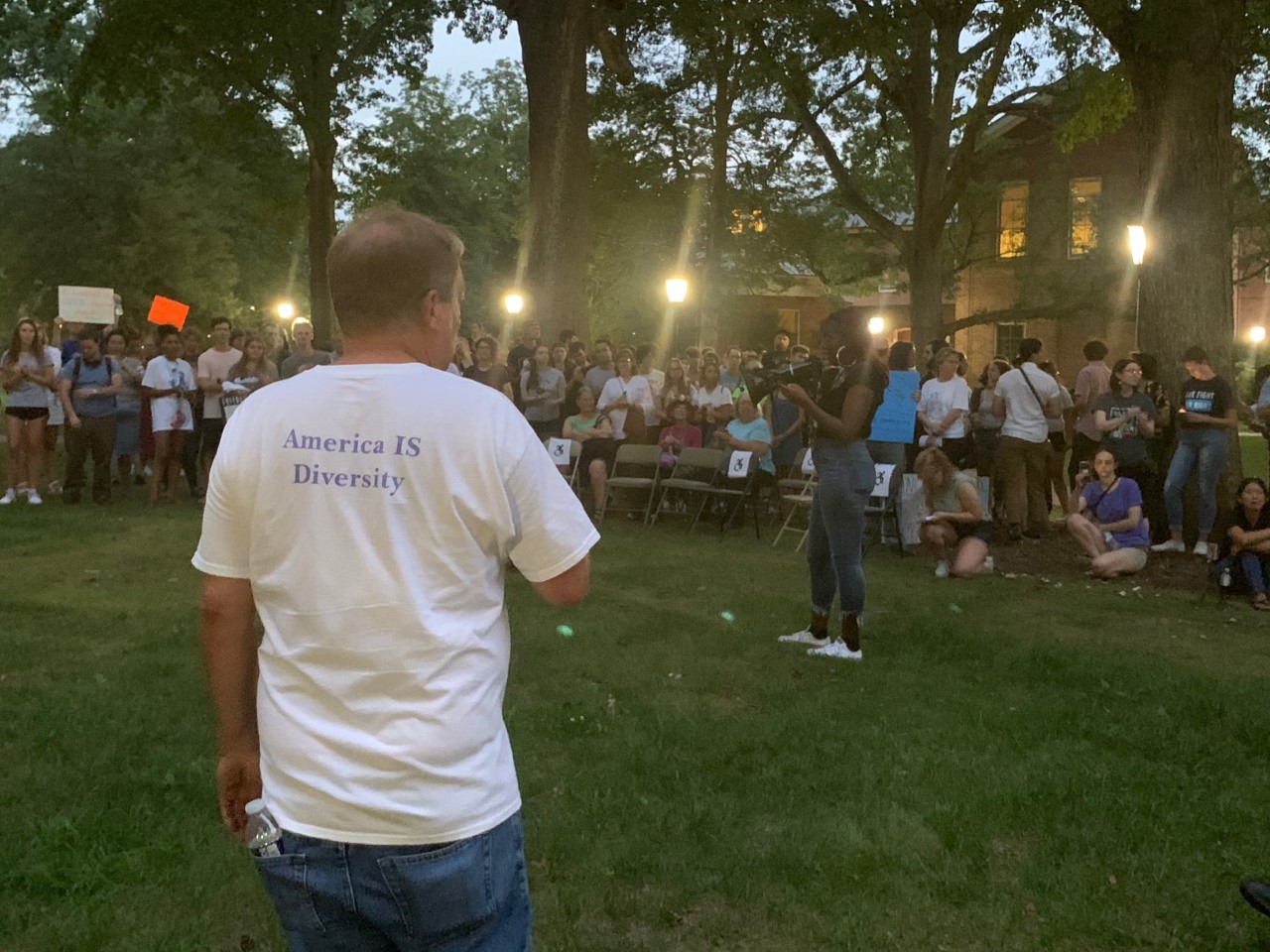
Groups Celebrate Anniversary of Silent Sam Toppling at UNCSinging and chanting started a rally Tuesday night celebrating the one-year anniversary of the Confederate monument on the UNC campus known as Silent Sam being toppled by protesters. A coalition of groups organized Tuesday’s event, including a land acknowledgment from a member of the Carolina Indian Circle and remarks from Barbara Sostaita with UndocuCarolina – […]
![]()
Silent Sam at UNC: A TimelineOne year ago, protesters tore down the Silent Sam statue at McCorkle Place. This is a timeline we created in 2018 to help better contextualize the events surrounding the Confederate monument in Chapel Hill. Since the Unite the Right rally in Charlottesville, Virginia, in 2017 — where a counterprotester was killed by a […]
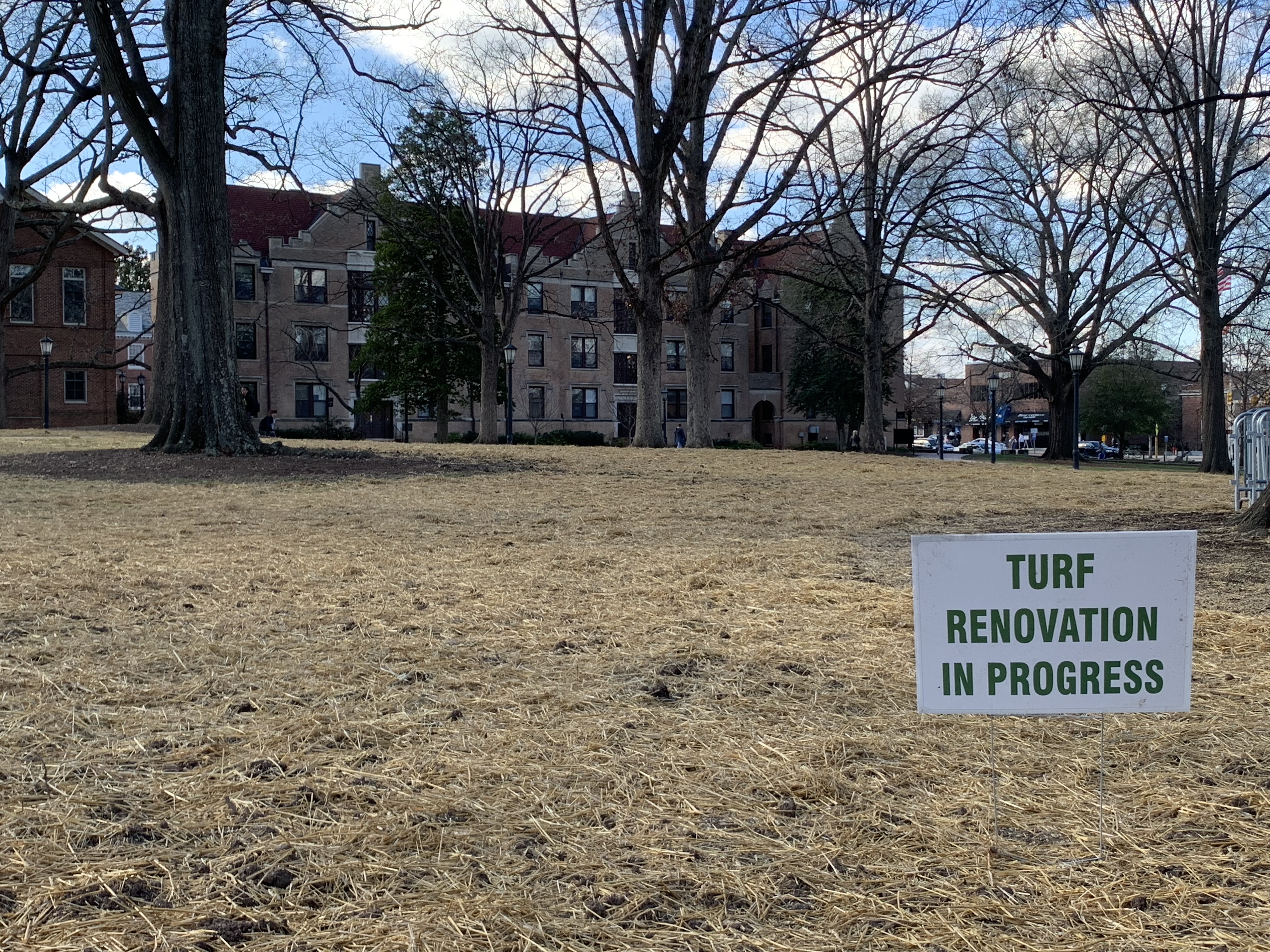
Silent Sam Decision Clouding Start of UNC Academic YearProtesters pulled the Confederate monument known as Silent Sam down from its pedestal on McCorkle Place on the UNC campus one year ago. But the monument’s future – whether on or off campus – is still undecided. That event on August 20, 2018, was the culmination of protests calling for the university administration to remove […]
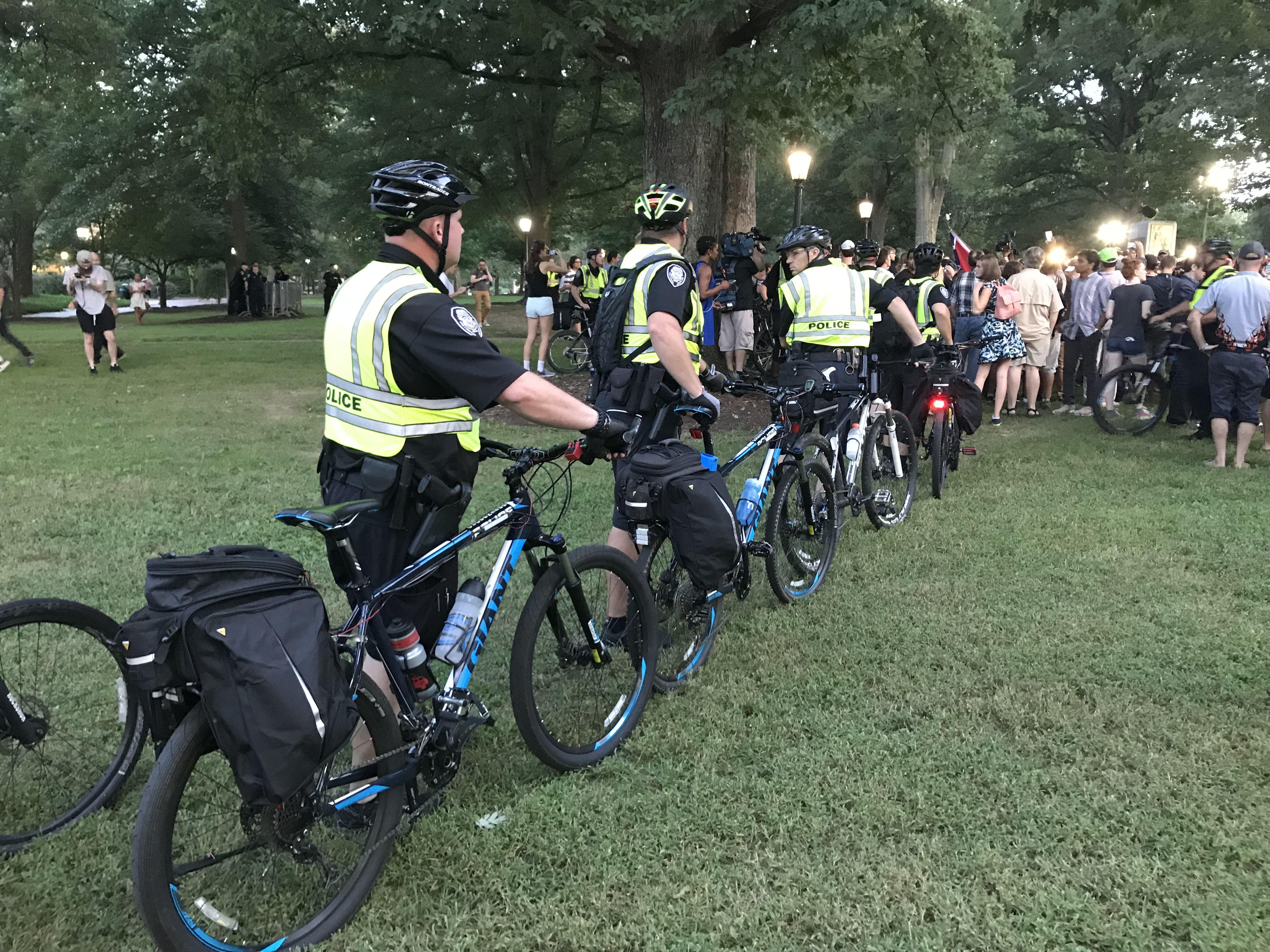
Silent Sam Decision Looms Over UNC, Search for Police ChiefJeff McCracken’s retirement as UNC Police chief, which was announced earlier this year, is effective Monday, and the university has named Thomas Younce as his interim replacement. UNC – Chapel Hill Board of Trustees chair Haywood Cochrane said after a special meeting of the board last Thursday that the national search for a permanent police […]

After Tumultuous Academic Year, UNC Board Still Divided on Silent SamWhile the Confederate monument known as Silent Sam wasn’t officially on the agenda for Wednesday’s meeting of the UNC System Board of Governors, it was still on the minds of many at the meeting. The initial mid-March deadline for a new plan for the statue that stood on the UNC – Chapel Hill campus for […]

UNC Governors Will Not Discuss Silent Sam at May MeetingContinuing a series of delays, the UNC System Board of Governors will not discuss the future of the Confederate monument on the UNC – Chapel Hill campus known as Silent Sam at the board’s May meeting. Board chair Harry Smith made the announcement Tuesday afternoon. “In early March, we set the May meeting of the […]

UNC, Chapel Hill Planning for Possible Demonstrations SaturdayOfficials from UNC and the Town of Chapel Hill are preparing for the potential for demonstrations in downtown where the campus and town meet on Saturday. The UNC administration sent a message to the campus community on Friday that said the university “is preparing for the possibility of opposing demonstrations on and near campus.” The […]
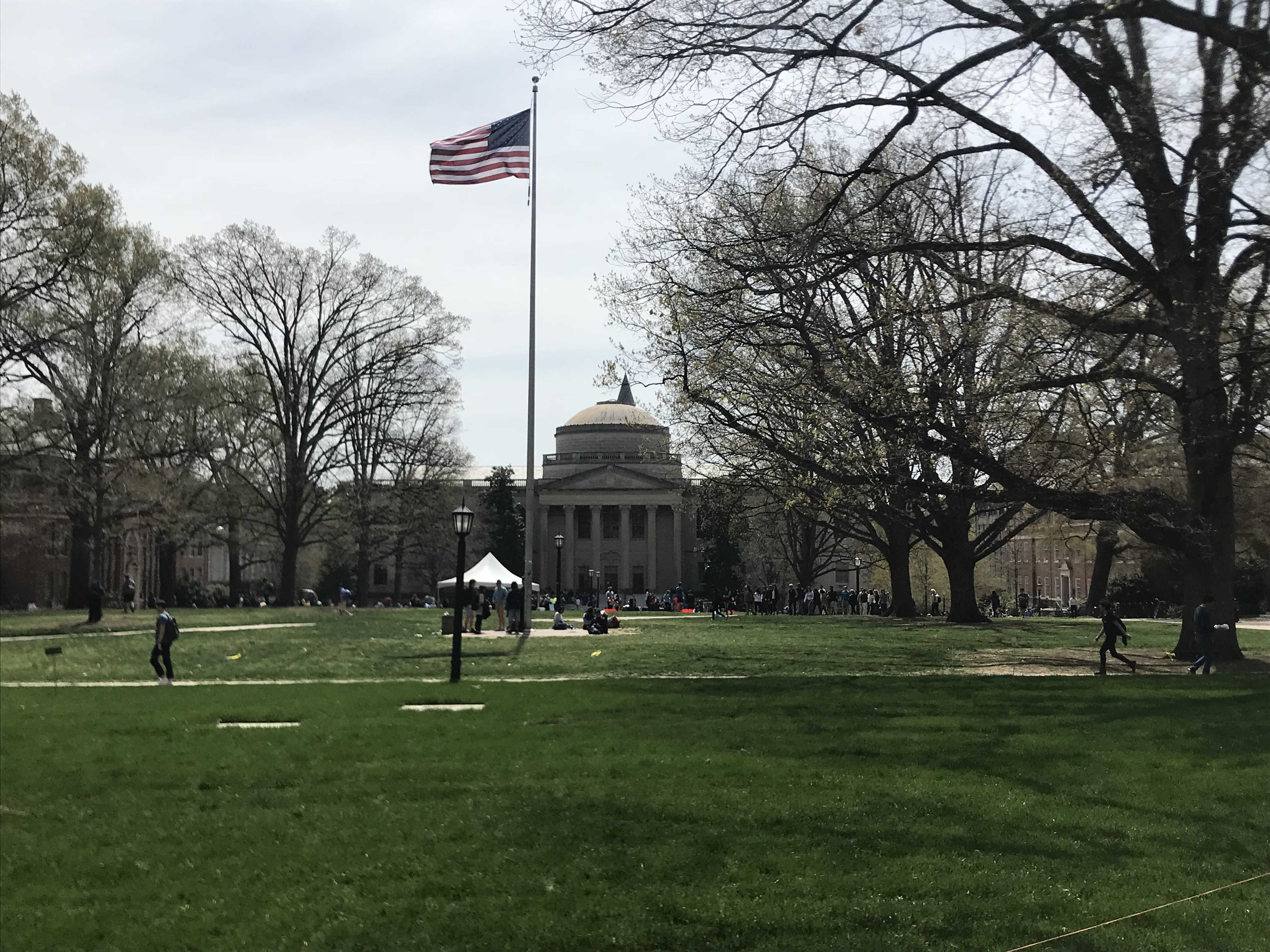
UNC Chair Says Faculty had Good Meeting Discussing Silent Sam with Board of GovernorsLeslie Parise announced late last month that she would be stepping down from her role as faculty chair. She joked during her address to the Board of Trustees University Affairs committee on Wednesday that leaving two years into the three-year appointment was fitting with recent university turnover. “Because, as you know, interim is kind of […]
›

